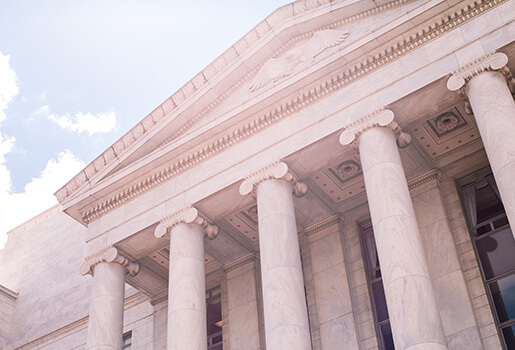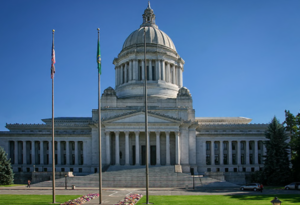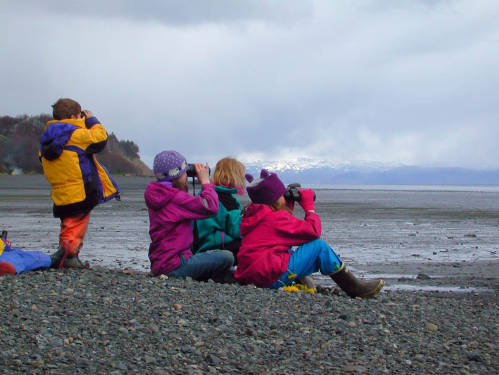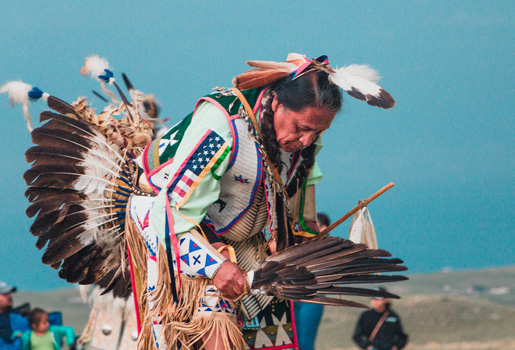Your project may be more successful if you have partners. Partnering with other organizations, businesses, or government agencies may help you obtain funding, share expertise, create a better project plan, spread the workload, and ultimately have a more successful project.
Partners with experience may be able to advise you on which regional action plans you should be considering aligning your project with. Often there are management plans that have been developed for an area, and projects are expected to align with those plans to be considered to be fundable. These plans may be local, regional, state, or interstate.

These may be sponsored by your drainage or stormwater utility, public works department, natural resource agency, mayor’s office, or another local agency. Federal agencies typically only have the resources to assist in large projects, but may provide awards to your state or county.
To find your local, state, or tribal governments, type the following into a search engine: your state/county and then the type of agency you are wanting to connect with (e.g., local government, tribal representative, state government). For example, search for “Alabama beach restoration permitting” or “New Jersey environmental protection.” Also try using terms that relate to your concern or solution. For example, “Florida coastal flooding help.” Try different terms, or combinations of terms, such as “grants, restoration, invasive species, marsh, natural resources, volunteers, funding, etc.” It may take a few tries to find the site and information you are looking for.
To find a specific local county office, type the following into a search engine: your local county or city and then the department you are wanting to connect with (e.g., environmental, planning, natural resources). For example, search for “Escambia County coastal management” or “Seattle WA natural resources.”

Are there programs to restore your local estuary or coastline? Are there initiatives to help threatened or endangered fish and wildlife? These programs sometimes have grant dollars.
Many states have the following departments, divisions, or commissions which you can use as internet search terms:
Many of these organizations are listed as members of the Association of Fish and Wildlife Agencies. Your state’s land-grant university may host a SeaGrant program or a Cooperative Extension Service related to agriculture, conservation. Extension agents can direct you towards helpful resources for your project type.

Some may focus on local issues. Others may be local chapters of state or national organizations. Always ask if there is anyone else you should be talking to, and who their recommended contact is. Network!
Search for “invasive species councils,” “estuary partnerships,” “national estuary programs,” “coastal invasive plants,” and similar terms to find local or regional groups. Below are some suggestions.
Restore America’s Estuaries is an alliance of 10 community-based conservation organizations focused on coastal habitat restoration.
The Alaska Tribal Resilience Learning Network is a community of learning, sharing, technical assistance, training, and support for Alaska Tribes, Leadership, and Indigenous communities as they respond and adapt to the current and future impacts of climate change.
The Society for Ecological Restoration Northwest Chapter a professional society dedicated to restoration to share information, coordinate restoration efforts, and gain technical skills.
Alaska Village Initiative is dedicated to improving the well-being of rural Alaska communities including efforts to support food security.
The Alaska Conservation Foundation serves as funder and supportive resource for a diverse community of nonprofits working to protect and manage Alaska’s natural resources.
The Alaska Wildlife Alliance (AWA) aims to protect wildlife through citizen mobilization, advocacy, and education.
The Ocean Foundation supports organizations for ocean conservation around the world including education, technical assistance, tools and trainings, and funding opportunities.
The Alaska Climate Adaptation Science Center provides scientific information, tools, and techniques that managers and others interested in land, water, wildlife and cultural resources can use to anticipate, monitor and adapt to climate change.
The Center for Environmentally Threatened Communities supports rural Alaska communities experiencing infrastructure impacts resulting from flooding, erosion, and melting permafrost.
The Southeast Alaska Watershed Coalition works to build the capacity of the region’s communities to implement local and collaborative approaches to the management, development, and stewardship of the region’s watersheds.
The Local Environmental Observer (LEO) Network is a group of local observers and topic experts who share knowledge about unusual animal, environment, and weather events.
Wikipedia lists environmental and conservation organizations in the United States.
Neighborhood organizations may be a resource for community outreach and volunteers.
Schools may be a source of volunteers.
Look for local businesses and business organizations that may have a stake in a cleaner environment.

Tribes and Indian Nations should be consulted about their interests in the area of the project.
Tribes and Indian Nations may have treaty rights that need to be observed and cultural resource concerns that apply to your project, especially if ground disturbance is involved in your project.
Tribes and Indian Nations often have resources that can help with your project. They often manage monitoring and research projects, and that information may be very helpful in the development of your project.
Contact the Tribe’s or Nation’s natural resource department early in the project. Click here for help finding recognized tribes and their leaders or here for help finding non-federally recognized tribes.
Learn more about partnering with Tribal Nations and incorporating Indigenous Knowledge.
We need your help to improve the Toolkit by completing our easy, 3-minute survey. Your insight is valuable to us.